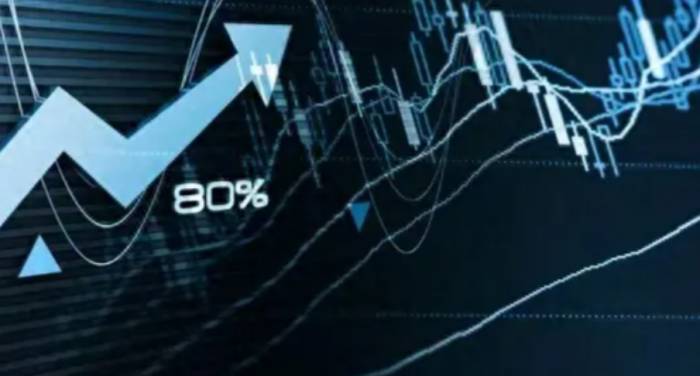Stock Market Chill: Truth Behind Shenzhen Index's Over 1% Plunge
In the financial market, the fluctuations of the stock market are constantly affecting investors' sentiments. Recently, the sudden plunge of the Shenzhen Component Index by over 1% has immediately sparked widespread attention and discussion. What exactly caused this reversal in the market trend? Today, let's delve into the truth behind this event.
First, let's review the context of the market changes. After a period of growth, the market sentiment seems to be gradually shifting from optimism to caution, especially in the face of global economic uncertainty and poor domestic economic data. This shift is not accidental but the result of a combination of various factors.
Recently, concerns about the economic recovery outlook have heated up again. Data shows that China's manufacturing activities have slowed down, especially in exports, with some companies facing the pressure of declining orders. This not only shakes investors' confidence in future economic growth but also exacerbates stock market volatility.
At the same time, the uncertainty of the global economic situation cannot be ignored. Especially against the backdrop of the Federal Reserve's continuous interest rate hikes, global capital flows have changed significantly, with funds beginning to withdraw from high-risk assets, putting pressure on the market. In such circumstances, many investors choose to wait and see, or even reduce their positions, further increasing the downward pressure on the market.
Advertisement
The plunge of the Shenzhen Component Index was also affected by poor individual stock performance. Many technology and consumer stocks that once performed strongly have been sold off, causing panic in the market and a significant rise in risk aversion. Once the market forms a panic, leading to large-scale selling pressure, the stock index naturally finds it difficult to maintain stability.
Furthermore, policy uncertainty has also had a negative impact on the market. Although the government has been introducing stimulus policies to promote the economy, there are still doubts about whether these policies will be effective in the short term. Some investors feel disappointed and begin to question whether the current policies can truly promote a stock market recovery.
Of course, in addition to economic data and policies, psychological factors in the market also played a huge role in this plunge. When the overall market performance is weak, it often triggers a chain reaction among investors, who choose to "cut their losses" to avoid greater losses. In this environment, the downward trend in stock prices can easily be magnified.
From a technical analysis perspective, the Shenzhen Component Index breaking through key support levels is also an important reason for this plunge. In terms of technical indicators, many investors will judge the timing to buy or sell based on charts. Once the stock index breaks through an important support level, the market is prone to panic selling, a situation known in psychology as the "herd effect."
Faced with such a complex market situation, investors need to remain calm. Although the stock market may continue to fluctuate in the short term, excellent companies still have strong growth potential and investment value in the long run. Therefore, it is recommended that when investing, one should not only pay attention to the current market sentiment but also focus on fundamental analysis.
At the same time, market fluctuations provide opportunities for some experienced investors. Some investors choose to position themselves during market downturns, buying high-quality individual stocks at low prices and looking forward to future rebounds. Although risks and returns coexist, rational investment decisions can always help seize opportunities in the market.So, how will the future market evolve? Experts believe that the next few weeks will be a critical period to observe the market's direction. Investors need to closely monitor the release of economic data and policy trends, especially the monetary policy of central banks and fiscal measures.
In summary, the sharp drop in the Shenzhen Component Index is just a microcosm of this wave of stock market fluctuations. Faced with the cold front, investors should remain rational, gather information from various sources, and formulate investment strategies that suit themselves. We hope that the market will warm up as soon as possible in the future, bringing more opportunities and hope!
In this challenging market environment, every decision can affect the success or failure of investments. We will also continue to pay attention to market dynamics and provide everyone with the latest market analysis and investment advice.

Leave a comment